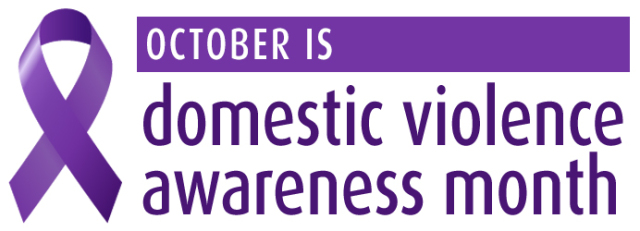You know someone who is in an abusive relationship. It could be the mom behind you in the car line at school. Maybe it’s the woman who sits at the cubicle down the hall. It could be the teacher of your Sunday school class. Maybe it’s you.
October is Domestic Violence Awareness month. This is a problem that knows no age or race or economic restrictions. The statistics are startling. One in three women will experience some type of domestic violence in a relationship. Here in Tennessee, the numbers are even higher—with forty percent of women encountering violence and/or stalking from an intimate partner at some point in their lives. There are 20,000 phone calls made to domestic violence hotline numbers every day. That number doesn’t tell the full story—because only a fraction of incidents are ever reported. One in fifteen children in our country are exposed to domestic violence in their homes. This makes them exponentially more likely to be a part of an abusive relationship once adults.
Several types of abuse take place in homes across our country:
Physical abuse
This may be the abuse that we think of first. The effects can be seen on the woman who does not want to remove her sunglasses or the mom from your daughter’s class who laughs off how clumsy she is to explain away the bruises that appear periodically on her arms. I once had a friend tell me that her husband said he only hit her where people could not see the bruises because he loved her. Physical abuse is any intentional and unwanted contact that your partner makes with you. This includes punches and slaps and pulling your hair. This also includes holding you to prevent you from leaving or forcing sexual activity. There are more than 4.5 million women in the United States alone who experience physical violence by their partner every year. Every day, around three women in this country are murdered by their husbands or boyfriends.
Do you remember this PSA that aired during the SuperBowl a couple of years ago? It’s one of the most powerful and chilling things I’ve seen on television:
Financial Abuse
Without the ability to earn a living or access to the resources to care for herself and her children, a woman can find herself completely dependent on her partner. Financial abuse is all about power and control. It can take the form of denying access to bank accounts and doling out a carefully monitored allowance. Or perhaps a woman is forbidden to work under threats of violence or neglect. A wife may find that her husband has used her name to take out bad loans, thereby ruining her credit. Often times, financial abuse occurs in conjunction with other abusive behaviors. Even when a woman is desperate to leave a home in which her husband beats her or intimidates her every evening, it can be difficult to do so without any resources.
Emotional and Psychological Abuse
“You are ugly, and I can’t stand the thought of touching you.” “It’s your fault that I’m so depressed and that I can’t find a better job.” “You are so stupid — you could never make it without me.” If you are humiliated or insulted or neglected by your partner, you are in an abusive relationship. It is not OK to live in fear of what your partner is going to say or do next. It is not acceptable to be the constant target of his criticisms and to be told that everything is your fault. Please know that words matter and the consequences of psychological abuse are real. Statistics show that 7 out of 10 women who faced psychological abuse from their partners display symptoms of PTSD and/or depression.
If you suspect that you have a friend who is in an abusive relationship, here a few ways to help:
Listen.
It can be embarrassing to admit that you are living in an abusive home. Or maybe you are afraid of the consequences if anyone finds out. If you think your friend may have something to share, make yourself the person who is available with a hot cup of coffee and a comfortable spot on the couch. Create a safe space that is devoid of judgment but that is ready with a hand to hold.
Be patient.
When a friend is being hit or belittled or isolated, it can be difficult to understand why she doesn’t just get out of the situation. There may be many false starts before she actually makes the decision to pack up and go. Contemplating comes with fear of the unknown, how to explain this to her children, and financial worries. Do not become frustrated. Do not blame her for not being ready to leave.
Offer resources.
While a woman who is in an abusive relationship likely feels very isolated, the truth is there are many people and programs out there ready to help. The National Domestic Violence Hotline number is (800) 799-SAFE (7233). Calling that number is a great place to start. There also are organizations in the Nashville area that offer counseling, emergency financial assistance, and even housing to those escaping domestic violence. Do a quick search and find the organizations that meet your friend’s needs, religious beliefs, etc. Sit with your friend as she places that first phone call or when she drives to her first group therapy session.
If you are in an abusive relationship, please know that you are not alone. You are not weak. You deserve better. So do your children.
If you have been suffering behind closed doors for a long time, you may not see your own value anymore. You may have come to see yourself as your abuser sees you. I understand. But I KNOW you are worthy of more. And you will come to find that you are stronger than seems possible today. Find a friend or a relative or a faith leader you trust and let that person know what is happening. Please do this today.
















